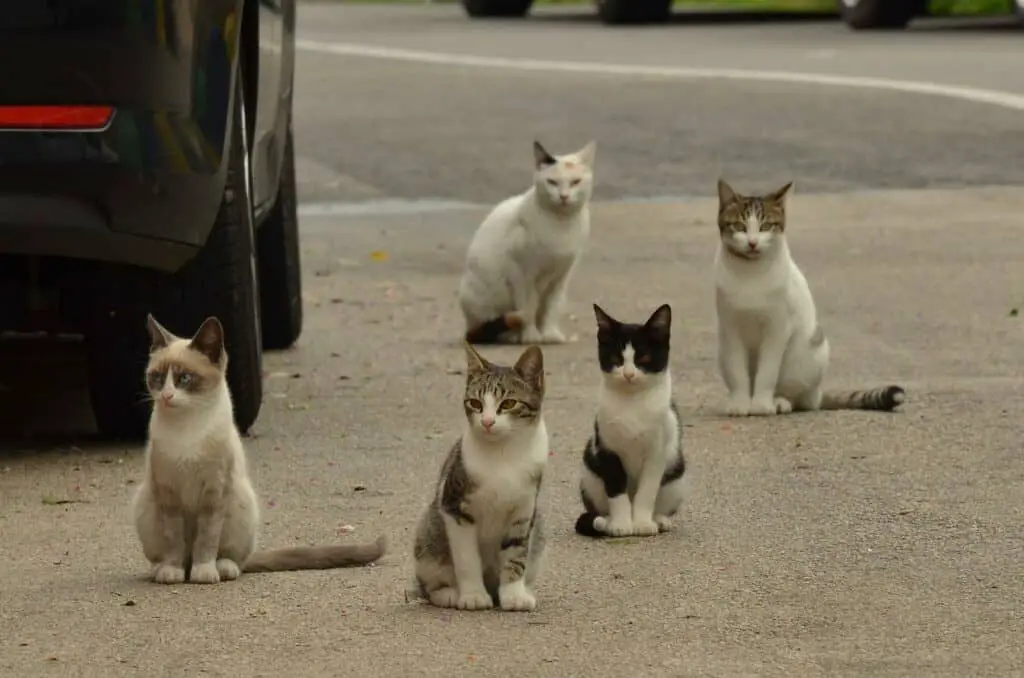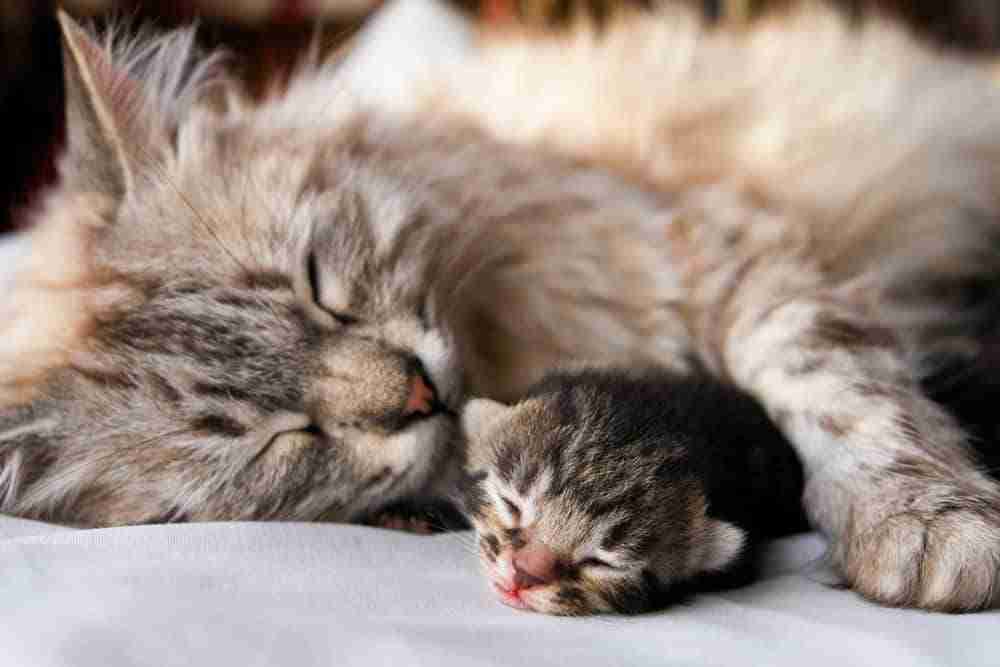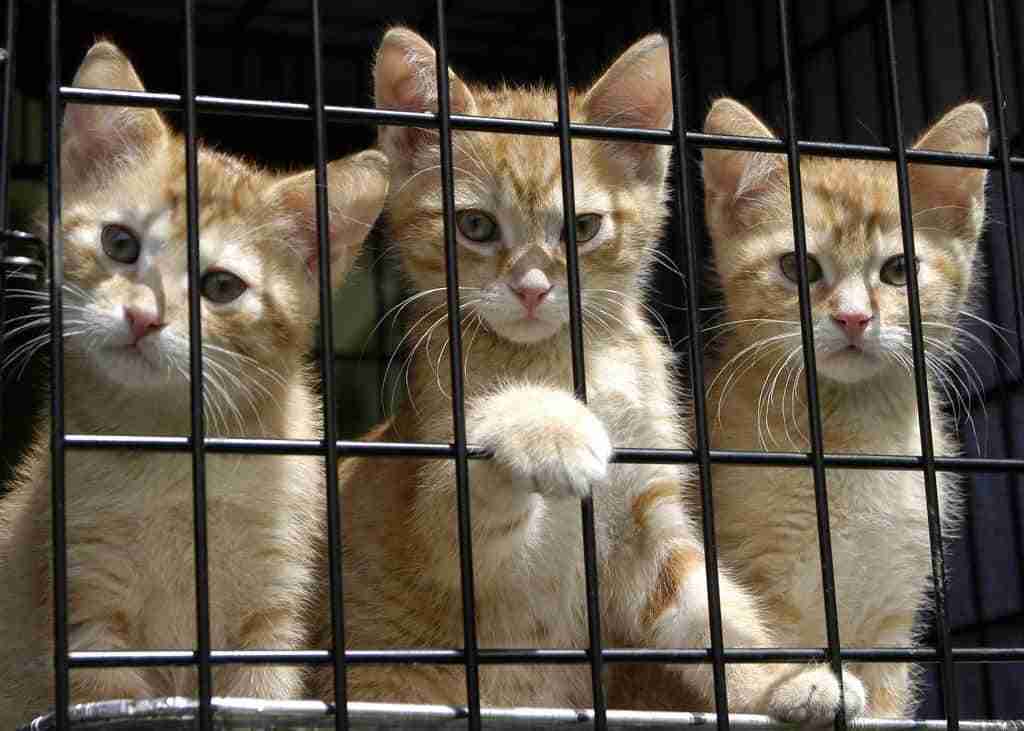When can kittens leave their mom? In truth, at any time, but to achieve their greatest chance of being a fully developed cat both socially and physically they should remain with their mother until 12 weeks of age.
Removing a kitten from its mother before 12 weeks is entirely possible – kittens are orphaned at all ages and survive, although many who are less than a month old when they leave their mom may fail to thrive and die.
Read on to learn at what age kittens can leave their mum.
When Can Kittens Leave Their Mom?
Many sources will say that kittens can leave their mom when they are eight weeks of age. This eight-week period is not just a random number. It is developed from the idea that kittens are usually weaned by the 4-8 week period, eating solid foods, and are essentially independent.
At this stage of development, they are kind of like teenagers – they have some basic skills and life experiences that will see them through but they are not fully developed socially, emotionally, or physically.

At this stage, the mother cat would have probably left her kittens in the wild or be spending far less time with them and be physically preparing for the next! But the litter will still be around and will be learning valuable life lessons from her and learning from interacting with each other.
Between weeks 8 and 12 they develop further. Social skills and learning how to be a cat happen! The mother will guide the kittens on risks and dangers and display physical abilities that the young can follow. They will learn cat etiquette from the mother and each other – knowing how hard to play, understanding cat body language, learning skills like litter training if house cats and further developing their hunting skills.
By the end of week 12, you have a fully developed young cat who can take care of itself and operate successfully in the real world without direction. These are the ideal circumstances to adopt the cat – it is mentally, physically, and socially developed.
Can A Kitten Younger Than 5 Weeks Survive Without Its Mother?
At the other end of the scale is the kitten who is orphaned, abandoned, or separated from its mother before they are weaned. Basically, a kitten is still getting all its nutrients from its mother’s milk. Can they survive? Not without human intervention is the direct answer. Let’s have a look at how the kitten develops to understand why survival before being fully weaned is unlikely without help.

In the first two weeks of life, the kitten is both deaf and blind and has no claws and no teeth. They are entirely dependent on their mother for nutrition. At this stage, if they are abandoned they are doomed.
From weeks two to four their eyes open and they begin to hear – but these sharp new senses are overwhelmed easily and the developing brain is trying to quickly plug in and understand what all these new inputs are.
The kitten’s body gets larger during this period and they begin to develop claws and teeth. By the end of week four, they are wobbly on their feet, and can see and hear, but have become so large their mother’s milk will no longer provide the nutrition needed to develop further to the next level. As a result, they begin to get hungry. Meanwhile, the mother is by now getting worn down and those sharp new teeth and claws are becoming very irritating. At this point, the mother starts to push the kittens away, whilst also bringing them solid food and demonstrating what to eat and how to catch it.
If abandoned at this stage they are very vulnerable without human help to provide food for them.
So, can a kitten younger than 5 weeks survive without a mother? Not without human intervention. They will need bottle feeding with kitten replacement formula and then an introduction to solid food. This is a hugely intensive process and merely ensures they physically survive – it does not set them up for cat life in the long term!

What Happens If You Take A Kitten Away From Its Mother Too Early
Kittens separated from mothers too early in life clearly have a major disadvantage compared to kittens that are left to be brought up by mum.
We can see that the earlier kittens are separated the harder the start in life is. If they are separated before they are weaned they have a real tough time – without human intervention, they are not going to survive. Even with human intervention, they are going to significantly miss out on some crucial development.
Let’s suppose you have a kitten that is three weeks old, the mother cat failed to survive the birth, what is likely to happen?
Well, first up you are bottle feeding formula on-demand until you can feel teeth coming through. Then, you are transitioning to solids. Let’s assume this intensive period passes well and the kitten and you survive – now you are all good, yes?
Well no, because now you have a cat who needs to learn their physical capabilities, and social skills and develop their judgment of risk and most of this is done with the siblings and mother in the wild.
A cat without these inputs is likely to be clingy toward the human that reared them, will lack understanding regarding interacting with other animals and cats, probably won’t know how to play or hunt, and will not understand cat interactions and body language – BUT, will survive and probably make a very good pet. They will come along with time but always be slightly different from more independent cats fully reared by their mother.

How Do You Know When Kittens Are Ready To Leave Their Mother
Really, anywhere from week 8-12 is a reasonable time for kittens to leave their mother. At this point, the mother is imparting wisdom rather than feeding and physically bringing up the kittens and they have been at this stage for probably 4-8 weeks already.
If your kitten is 8 weeks older or more, is house trained, eating solids, playing and interacting with siblings, and maybe coming from a home with other animals or children, then you are probably going to get a well developed, balanced young cat that is ready to leave their mother and siblings.
The main identifiers that they are ready are eating solids, toileting independently in a litter tray, and playing hunt-style games like chase and pounce activities. At that point you know they are likely to be off to a good start and potentially able to live as a stray if life went that way for them.
Do Mother Cats Get Sad When Their Kittens Are Taken Away
Assuming that the kitten is in the 8-12 week age range the mother cat will not get sad if her kitten disappears.
As far as the mother cat is concerned, she has been adjusting and preparing since week 4 for the next litter of kittens. She has been recovering and physically reconditioning, getting ready for the next breeding cycle, and has been looking to move her initial litter of kittens on to independence.
But, a mother cat that is away from a kitten for any period of time during the weaning stage in the first four weeks may become anxious and sad if separated for any period of time.
If a kitten dies it will likely grieve somewhat. They may refuse to give you access to the body initially until they understand the health risks to their remaining kittens.

Final Thoughts
When can kittens leave their mom? If you want a fully developed, mentally balanced, and socially skilled kitten it is best if they are with their mom until week 12. But, they can survive without mom with human help if they eat solids from week four onwards. Before then they need human help to physically survive – involving bottle feeding. Any kitten separated from its mother before week 8 to 12 is likely to suffer from behavioral issues due to a lack of mothers guidance but these are often overcome with time and safe exposure to learning opportunities.
